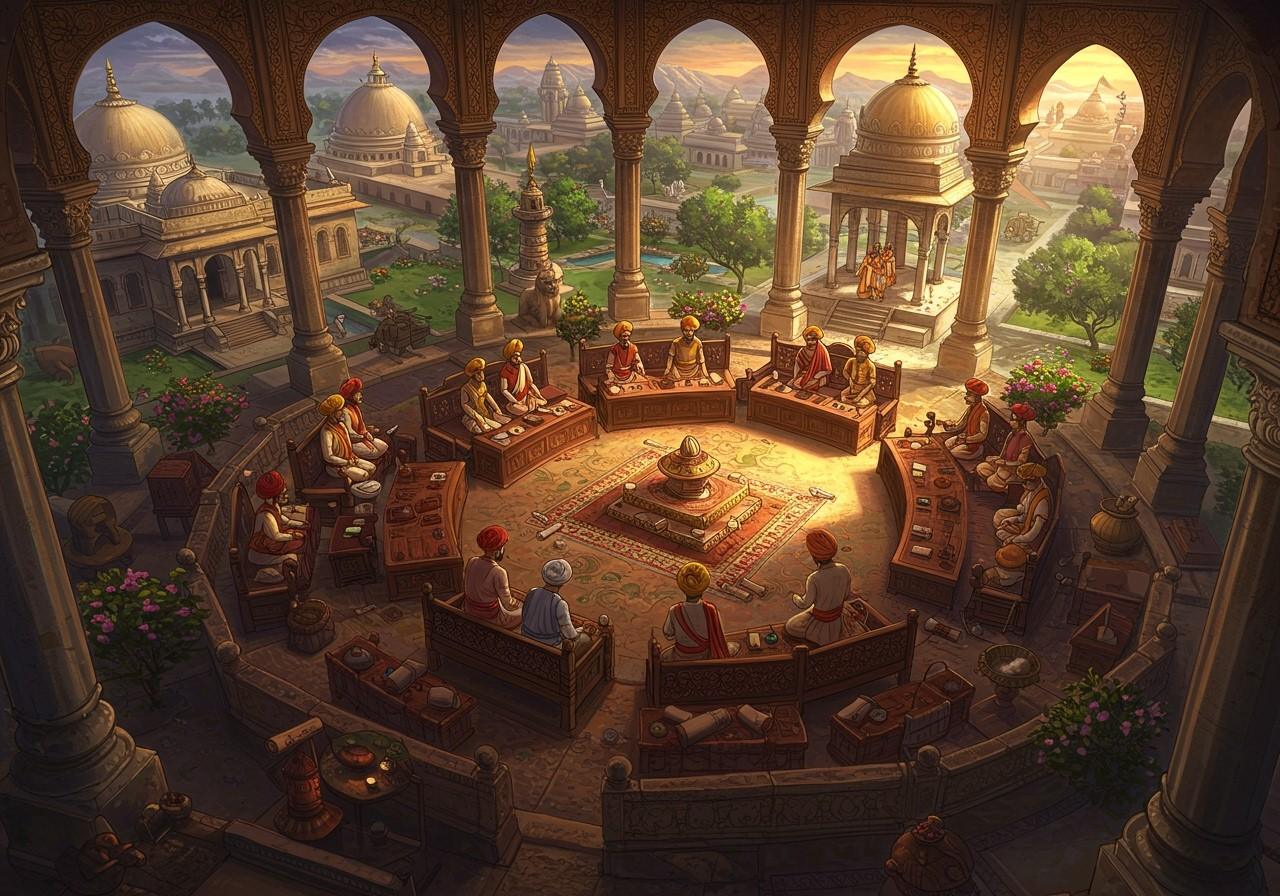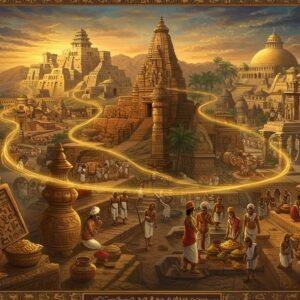
Vaishali, an ancient city in modern-day Bihar, India, holds a significant place in history as a beacon of early democratic governance. Flourishing around the sixth century BCE, contemporaneous with the Mahajanapadas period, Vaishali distinguished itself through the Licchavi clan’s establishment of a unique republican system. This article delves into Vaishali’s rich political heritage, examining the democratic principles that shaped its governance, its significance in ancient Indian history, and the valuable lessons its legacy offers for contemporary political systems. The Licchavis, like the Sakyas of Kapilavastu (where the Buddha’s family originated), embodied the Gana-Sangha (People’s Union) or Gana-Rajya (People’s Rule) structure, showcasing India’s deep-rooted democratic traditions.
The Political System of the Licchavi Republic
The Licchavi Republic stands out for its sophisticated democratic system, a remarkable feat in the ancient world. The following aspects highlight its key features:
Structure and Functioning
At the heart of the Licchavi government was the ‘Gana’ or assembly. This body comprised representatives from various clans and families, fostering a broad representation of the populace. These representatives and leaders were selected through a democratic process, ensuring some level of public participation. Decisions within the Gana were reached through consensus and thorough discussion, emphasizing collaborative governance.
Judicial System
The Licchavi Republic maintained a robust judicial system characterized by transparency and fairness. Appointed judges presided over disputes, ensuring impartial resolution. This system fostered respect for the rule of law and contributed to social harmony.
Administrative Divisions
The administration of the republic was structured around clearly defined roles and responsibilities. Officials were assigned specific tasks and regions to manage, ensuring smooth and efficient governance. This structured approach promoted order and facilitated the effective functioning of the state.
Role of Women
While the extent of their participation was subject to societal norms of the time, women held roles in the political processes of the Licchavi Republic. Their contributions, though perhaps limited compared to later eras, were recognized, reflecting a degree of inclusivity in the political sphere.
Influence of Philosophies
The philosophical currents of the time, particularly Buddhism and Jainism, significantly influenced the governance of the Licchavi Republic. These philosophies, with their emphasis on ethical conduct, non-violence, and social harmony, likely shaped the republic’s values and political practices.
Vaishali’s Contribution to Ancient Indian Democracy
Vaishali stands as a pioneering example of democratic governance in ancient India. Its significance is underscored by the following points:
Historical Context
Emerging during the Mahajanapadas period (6th-4th centuries BCE), Vaishali’s democratic experiment provides crucial insights into the development of political thought and practice in ancient India. The republic’s existence alongside other forms of government offers a unique comparative lens for understanding the evolution of governance in the region.
Influence on Neighboring Regions
Vaishali’s model of governance likely influenced neighboring regions and other ancient Indian republics. The spread of democratic ideas and practices from Vaishali contributed to the broader political landscape of the time. Archaeological findings support the existence and influence of this system.
Lessons from Vaishali for Modern Governance
The democratic principles of the Licchavi Republic remain remarkably relevant today, offering valuable lessons for contemporary governance. Here are some key takeaways:
Participatory Governance
Vaishali’s emphasis on public participation in decision-making through the Gana serves as a powerful reminder of the importance of citizen engagement in modern democracies. This principle remains crucial for ensuring that government decisions reflect the needs and aspirations of the people.
Consensus-Building and Collaborative Leadership
The Licchavi Republic’s focus on consensus and discussion within the Gana highlights the effectiveness of collaborative leadership and the importance of seeking common ground in political decision-making. These practices remain essential for navigating complex political landscapes and achieving positive outcomes.
Transparency and Accountability
The transparent nature of Vaishali’s judicial system and the defined responsibilities of its officials underscore the importance of transparency and accountability in governance. These principles are fundamental for building trust between the government and the governed.
Poojn.in: Connecting You to India’s Spiritual Heritage
Poojn.in, India’s leading online store for cultural and religious goods, offers a wide selection of products to help you connect with India’s rich spiritual traditions. Explore our collection of mala beads, statues, incense, and other items essential for your spiritual practice. Poojn.in is committed to providing high-quality products and exceptional customer service, making it the ideal destination for all your puja needs.


